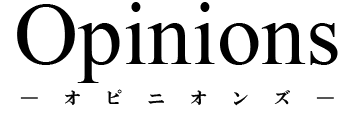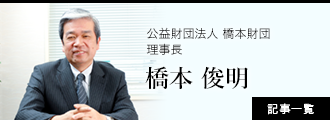
- 記事一覧
- ゲストライター記事一覧
- 誰が人間としてみなされるのか?不安ばかりが残った入管法改正案の撤回 Who counts as human? Lingering concerns over the withdrawn immigration bill
誰が人間としてみなされるのか?不安ばかりが残った入管法改正案の撤回 Who counts as human? Lingering concerns over the withdrawn immigration bill

※日本語訳は英文の後に掲載しています。
On May 18, the bill to revise the Immigration Control and Refugee Recognition Act (ICRRA) was withdrawn by the LDP. If passed, this bill would have made this country an increasingly hostile place for asylum seekers.
Despite the increased opposition against this bill in recent months, its passing appeared inevitable; it had the backing of the Suga Cabinet and the Diet currently holds a conservative majority. What changed?
On 6 March 2021, Wishima Sandamalia, a 33-year-old Sri Lankan woman and a survivor of domestic violence died at Nagoya Regional Immigration Bureau after requests for provisional release were denied by immigration officials. 3 months later, her death remains unexplained.
The way this case was spotlighted during the deliberations over the ICRRA bill portrayed Wishima’s life as a “grievable life” -- and yet so many injustices perpetrated by the Japanese immigration system rarely capture attention to this degree. It seems likely the bill would have passed without this public backlash directed at the Ministry of Justice (MOJ) and the Immigration Services Agency (ISA).
Below, some problems with the now-withdrawn bill are discussed in the context of international legal standards. Japan’s unwillingness to adhere to human rights obligations is apparent in both the ongoing and this proposed practice. It shows us how asylum seekers and irregular migrants are seen by the state: not as human beings entitled to human rights, but as “others” to manage.
The withdrawal of the bill does not signify a change of this stance. Rather, it leaves us with lingering concerns over the content of future revisions.
Why did the bill come about?
The proposals to revise the ICRRA were introduced by the MOJ’s Expert Committee in June 2020. It had been framed as a response to the increase in the number of “overstayers” and persons who had refused deportation orders being detained long-term. Note: in 2019, 60% of deportation refusals were by persons applying for refugee recognition.
This quick fix intended to decrease the number of people detained long-term by making it easier to deport them.
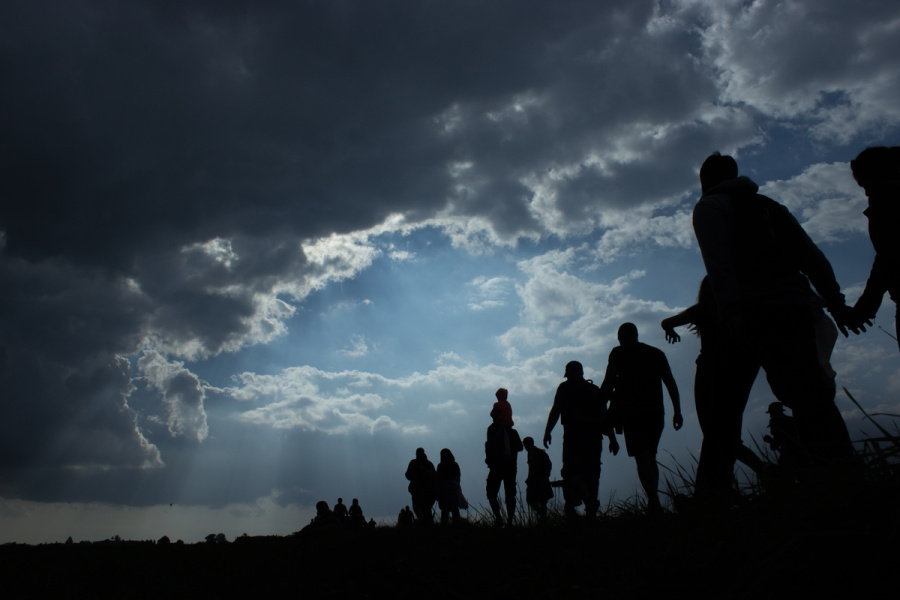
The suspension of deportation
Currently, asylum seekers with pending applications and appeals in Japan are automatically protected from deportation by 送還停止効 (“the suspension of deportation”). The bill had proposed to remove this “suspension”.
Its aim was to allow for the “prompt deportation” of persons who have had their asylum application refused twice, even if in the process of an appeal or a third application (UNHCR 2021: 9).
Under international law, the act of deporting persons at risk of persecution or other irreparable harm in their country upon return constitutes refoulement. The absolute prohibition against refoulement is enshrined in the principle of non-refoulement.
This principle is central to the 1951 Refugee Convention (Article 33). It stipulates that refugees cannot be refouled. In addition to being prohibited by other human rights instruments that Japan is party to (e.g. CAT, ICCPR), this principle is customary international law.
While the Convention states that countries “cannot refouler a refugee”, “refugees” include persons who have not had their status formally recognised by a refugee status determination (RSD) procedure. Individuals do not become refugees through RSD procedures; rather, the moment a person fulfills the Convention criteria of crossing an international border to escape serious harm, they are a refugee. This means that the principle applies to those who are awaiting RSD or appeal.
Concerning this proposed removal of the “suspension”, MOJ gave the impression that for an asylum application to be considered twice is enough to ensure protection to those who are entitled to it. However, as pointed out by UNHCR, Amnesty International, and others, in the context of Japan’s strict and often inconsistent RSD procedures, that would not have been the case.
• Around 10 percent of asylum applications (2011-2018) succeeded after their third attempt or appeal in court.
• Around 20 percent of those recognised as refugees and around 41 percent of those granted humanitarian status (2010-2018) received their statuses after being issued deportation orders (JFBA 2020).
Errors in RSD are occurring in this system, often criticised for its lack of transparency, consistency and independent third-party checks to ensure appropriate decision making is taking place. Therefore, this change would have entailed greater risks of refoulement, contrary to Japan's international obligations towards asylum seekers.
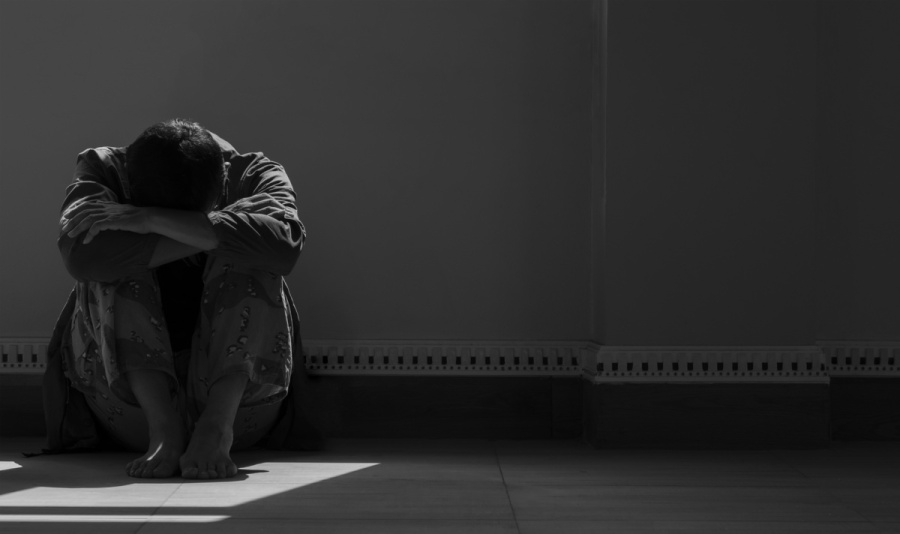
Indefinite detention
Immigration detention infringes upon the human right to liberty, and can only be used as a “last resort” under international standards. In 2018, UNWGAD reiterated that, “irregular entry and stay in a country by migrants should not be treated as a criminal offense”.
In Japan, detention is mandatory for non-nationals without status, meaning it is not exceptional or a measure of “last resort”. That is, decisions to detain do not require judicial approval or review under domestic law (UNWGAD 2020). This makes detention arbitrary -- meaning that detention occurs without a legitimate reason or a legal process -- which is a violation of Japan’s obligation under the ICCPR, Article 9.
In a 2018 internal communication concerning persons who have been issued a deportation order, MOJ categorically stated that indefinite detention is permitted, without reference to alternatives other than provisional release. This reiterated Article 52(5) of the ICRRA. Both domestic law and practice show a clear stance of violating human rights standards.
This ongoing practice, which arguably amasses the most international criticism*, was not addressed by this recent bill. MOJ’s defense to not limit detention was as follows: “foreigners who should be deported will be able to live in Japanese society, making it complicated to properly manage them”.
So what?
The power of activism in opposing this bill should not be discounted. However, the likelihood that it would have passed without the wider public backlash caused by Wishima’s death gives us reason to be deeply concerned for future attempts to revise the ICRRA.
That is, despite this recent step away from the wrong direction, the fundamental stance of the state remains unchanged.
The bill’s aim to increase deportations and the failure to address indefinite detention indicates a continued rejection of Japan’s international obligations toward asylum seekers and irregular migrants.
“Who counts as human? Whose lives count as lives? And, finally, what makes for a grievable life?”
(Butler 2006: 20).
State-sanctioned human rights violations against asylum seekers and irregular migrants evidence the way the state considers their humanity. In the case of Wishima and many others who were or continue to be detained and face inhumane treatment, their violations occur because the state prioritises “managing” them above all else.
Of any ICRRA revisions that may be introduced in the future, we must remain watchful of the ways in which the state will continue to circumvent its human rights obligations toward asylum seekers and irregular migrants.
Whenever "management" is used as an excuse to justify policies that infringe upon human rights, we must see it as a red flag -- for there are no justifications to treat some human beings as less human than others.
*International concerns over indefinite and arbitrary detention in Japan have been raised for over a decade: Committee Against Torture in 2007 and in 2013, the Human Rights Committee in 2014, and by the Committee on the Elimination of Racial Discrimination in 2018.
5月18日、政府・与党は今国会での出入国管理及び難民認定法(入管法)の改正法案の成立を見送りました。もし通過していたら、この法案は、日本を難民申請者にとってますます敵対的な場所にするものでした。
この数ヶ月間、この法案に対する反対意見が高まっていたにもかかわらず、成立は避けられないと思われていました。この法案は菅内閣の支持を受けており、国会は現在、保守派が多数を占めているためです。では、どのような理由でこの法案は見送られたのでしょうか。
2021年3月6日、33歳のスリランカ人女性でDV被害者であるウィシュマ・サンダマリさんが、名古屋入国管理局において、仮放免申請が入国管理局に却下された後、死亡しました。3ヶ月経った今も、彼女の死は原因不明のままです。
入管法改正案の審議では、ウィシュマさんの命が「悲しむべき命」として取り上げられましたが、日本の入管制度で行われている多くの不正行為がここまで注目されることはめったにありません。もしウィシュマさんの死による法務省や入国管理局に対する世論の反発がなければ、法案は成立していたのではないでしょうか。
本稿では、現在取り下げられている法案のいくつかの問題点を、国際的な法的基準に則って考えてみたいと思います。日本が人権義務を遵守することに消極的であることは、現在の入管法及び、提案されていた法案の両方で明らかです。これは、国家がどのように難民申請者と非正規移民を見ているかを示しています。つまり、彼らのことを人権を享受する権利を有する人間としてではなく、管理すべき「他者」として見做していること示しているのです。
なぜこのような法案ができたのか?
入管法の改正案は、2020年6月に法務省の専門家部会によって提言され、それは、「オーバーステイ」や退去命令を拒否した者が長期的に拘留されるケースが増加していることへの対応という枠組みでした。(注:2019年、退去強制拒否の60%は、難民認定申請者によるもの)
この法案は、長期拘留されている人々を退去させやすくすることで、その数を減らすことを目的としていました。
強制送還の停止
現在、日本で申請および再申請中の難民申請者は、「送還停止効」によって自動的に国外退去から保護されていますが、今回の法案では、この「停止」を削除することが提案されていました。
難民認定申請を2度拒否された人は、たとえ不服申し立てや3度目の申請中であっても、「迅速な強制送還」が可能になっていたのです(UNHCR 2021: 9)。
帰国後に迫害やその他の回復しがたい損害を受ける危険性がある人を自国に送還する行為は、「ルフールマン」(注:迫害にあう可能性がある国へ強制的に送還すること)にあたり、その絶対的な禁止は、「ノン・ルフールマンの原則」として国際法に明記されています。
この原則は、1951年の難民条約(第33条)の中心となるもので、日本が締結している他の人権文書(拷問等禁止条約、国際人権規約など)でも禁止されているほか、国際慣習法でもあります。
難民条約では「難民を拒むことはできない」と明記されていますが、「難民」には、難民認定手続きによって正式にその地位が認められていない人も含まれます。手続きを経て難民に「なる」のではなく、深刻な被害から逃れるために国境を越えたという条約の基準を満たした時点で、その人は難民なのです。つまり、この原則は、難民認定手続きや再申請を待っている人にも適用されるのです。
今回提言された「停止」の削除について、法務省は、難民申請を2回検討すれば、保護を保証するかどうかの審議に十分であるかのような印象を与えていました。しかし、国連難民高等弁務官事務所(UNHCR)やアムネスティ・インターナショナルなどが指摘しているように、日本の厳格で一貫性のない難民認定手続きでは、決して十分であるとは思えません。
• 難民申請(2011年~2018年)のうち、3回目の試みや裁判所への訴えを経て認められたのは約10%。
• 退去命令を受けた後に、それぞれの申請が認められた割合は、難民として認められた人の約20%、人道配慮を与えられた人の約41%(2010年~2018年)。(日弁連2020年)
この法案は、難民申請者に対しての日本の国際的な義務に違反し、強制送還のリスクを増大させることになっていました。このシステムでは難民認定申請のエラーが発生しており、適切な意思決定が行われていることを確認するための透明性、一貫性、独立した第三者のチェックが欠如しているとして、しばしば国内外から批判されています。
無期限の収容
移民の収容は、自由に対する人権を侵害するものであり、国際基準では「最後の手段」としてしか用いることができません。2018年、国連恣意的拘禁作業部会(UNWGAD)は、「移民の非正規な入国・滞在を刑事犯罪として扱うべきではない」と繰り返し述べています。
しかし日本では、ステータスのない他国民には収容が義務づけられており、例外的な措置や「最後の手段」ではありません。つまり、収容の決定には、国内法上、司法の承認や審査を必要としません(UNWGAD 2020)。このことは、収容を恣意的にするものであり、正当な理由や法的手続きなしに行われることを意味し、国際人権規約第9条に基づく日本の順守義務に違反しています。
退去命令を受けた者に関する2018年の内部通達で、法務省は、無期限の収容が認められると断定的に述べています。これは、出入国管理及び難民認定法の第52条5項にも記されており、つまり、日本では法律と実務の両方が、人権基準に違反していることが明確なのです。
国際的に批判されている(※)この無期限の収容は、今回の法案では取り上げられませんでしたが、収容の期限を設けない理由として、「退去させるべき外国人が日本社会で生活できるようになり、適切な管理が難しくなるため」と法務省は述べています。
「管理」は人権より優先するものなのか?
この法案に対する反対運動の力は影響力のあるものでしたが、ウィシュマさんの死による社会的な反発がなければ、この法案は可決されていた可能性が高く、今後も入管法を改正しようとする動きには深い懸念を抱かざるを得ません。
つまり、今回の法案が見送られましたが、国家の基本的なスタンスは変わっていないだろうということです。
この法案は、強制送還を強化することを目的としており、また、無期限収容の問題には何も対処していないことから、難民申請者や非正規移民に対する日本の国際的な義務を否定しているのです。
『誰が人間としてみなされているのか?誰の生が「生」としてみなされているのか?そして、究極的には、何が生をして悲しまれるに値するものとなるのか?』
(Butler 2006: 20)
難民申請者や非正規移民に対する国家による人権侵害は、その国が彼らの人間性をどのように考えているかを示すものです。非人道的な扱いを受けたウィシュマさんをはじめとする多くの人々の場合、国家が彼らを「管理」することを何よりも優先しているために、彼らへの人権侵害が起きているのです。
将来的に導入される可能性のある入管法の改正についても、難民申請者や非正規移民に対する人権義務を国家が放棄し続けようとすること、そして、「管理」が人権を侵害する政策を正当化する口実として使用される可能性があることを、私たちは心に留めておかなければなりません。他者を劣った存在として扱うことを正当化することは、決してできないのです。
(※)日本での無期限・恣意的な拘束に対する国際的な懸念は、10年以上前から指摘されています。2007年と2013年には拷問禁止委員会、2014年には人権委員会、2018年には人種差別撤廃委員会からも指摘されています。
Butler, J. (2006). Precarious life: The powers of mourning and violence. Verso Books.
Links:
JFBA, 2020. “Statement on the ‘Proposal to Solve the Issues of Deportation Evasion and Long-term Detention’”
OHCHR, 2018. “The principle of non-refoulement under international human rights law”
UNHCR, 2021. “UNHCR comments on the Bill for partial amendments to the Immigration Control and Refugee Recognition Act submitted to the 204th Diet session of year 2021 Based on the Recommendations of the Sub-Committee on Detention and Deportation (SCDD), 7th Immigration Control Policy Discussion Panel 9 April 2021”
UNWGAD, 2020. “Opinions adopted by the Working Group on Arbitrary Detention at its eighty-eighth session, 24–28 August 2020 Opinion No. 58/2020 concerning Deniz Yengin and Heydar Safari Diman (Japan)”

Recently Popular最近よく読まれている記事
-

食べていても痩せる 高齢者終末期のカヘキシア(悪液質)
食べていても痩せる。活発に運動を続けている人なら不思議に思わないが、介護度の高い高齢者にそのようなことが果たして起こるのだろうか。起こるのであれば、それはカヘキシアという病態であれば説明できる。 カヘキシア(悪液質)カヘキシアとは、食欲不振・体重減少・全身衰弱・倦怠感などを呈し、生命予後やQOL(qualit… -

終末期の自然な経過を見極めるとは
長期に渡り胃ろうからの栄養を続けていると、注入した物が食道へ逆流したり、唾液や痰の貯留が増えたりして、吸引を繰り返すことになるが、結局のところ、頻回の吸引も間に合わず、心肺停止状態で発見されることが多い。これでは看取りとは言えない。ここに至るまでの言葉を語れない人の苦しみ。このような事態を避ける智慧… -

自閉症スペクトラムと呼ばれているような障害は、実は障害ではない。生物としての人類のバリエーション(変異)の一つである。
自閉症スペクトラムと呼ばれているような障害は、実は障害ではない。生物としての人類のバリエーション(変異)の一つである。本来は人類の、生息環境に対する適応の一つのあり方だというのが、ニューロダイバーシテイ(脳多様性)という考え方に他ならない(詳しくは正高信男著『ニューロダイバーシテイと発達障害』(北大… -

社会保障分野での普遍主義と選別主義について
介護保険や医療保険では、貧富にかかわらず保険によって9割が給付(自己負担は1割)あるいは、7割が給付(自己負担は3割)される。この様な社会保障の方式は、「普遍主義」といわれている。「普遍主義」は、義務教育や、最近では高等学校の授業料にも適応されている(この場合も裕福な人も貧しい人も同様に無償である)。反… -

飲まず食わず(自発的飲食中止)という選択、VSEDをご存知ですか?
前回(Opinionsで9月24日配信記事)は有馬斉氏による安楽死の分類と、我が国の現状についてお伝えしました。また我が国においては、医師の致死的薬剤の処方による積極的安楽死は、法的に支持されていないということもお話ししました。諸外国では医師による致死的薬剤処方による安楽死が認められている国もありますが、もち… -

医療崩壊
ある日の外来。朝の9時から診察室に座りっぱなしでそろそろ3時間が経過。既に再診患だけではなく、その日の新患も回ってきます。で、そうした中に問題のおじさんがいました。「今、○○クリニックで薬をもらっていまして・・・」「30日分貰っているのですが、お腹が痛くなったので、診てもらいに来ました」「○○先生の紹介…
Writer ライター
-
 受賞作品Opinionsエッセイ
受賞作品OpinionsエッセイOpinionsエッセイの記事を見る
-
 ペンネーム東沖 和季
ペンネーム東沖 和季東沖 和季の記事を見る
-
 ニセコ在住下田 伸一
ニセコ在住下田 伸一下田 伸一の記事を見る
-
 ペンネーム 看護師宇梶 正
ペンネーム 看護師宇梶 正宇梶 正の記事を見る
-
 武蔵野大学大学院大谷 航介
武蔵野大学大学院大谷 航介大谷 航介の記事を見る
-
 一般社団法人村楽東 大史
一般社団法人村楽東 大史東 大史の記事を見る
-
 会社員池松 俊哉
会社員池松 俊哉池松 俊哉の記事を見る
-
 (公財)橋本財団研究助成 成果報告
(公財)橋本財団研究助成 成果報告研究助成 成果報告の記事を見る
-
 横浜市立大学小林 天音
横浜市立大学小林 天音小林 天音の記事を見る
-
 東京西徳洲会病院小児医療センター 小児神経科医師秋谷 進
東京西徳洲会病院小児医療センター 小児神経科医師秋谷 進秋谷 進の記事を見る
-
 公益財団法人地方自治総合研究所 常任研究員坂本 誠
公益財団法人地方自治総合研究所 常任研究員坂本 誠坂本 誠の記事を見る
-
 ペンネームAurora
ペンネームAuroraAuroraの記事を見る
-
 つむぐ株式会社 代表取締役竹村 仁量
つむぐ株式会社 代表取締役竹村 仁量竹村 仁量の記事を見る
-
 岡山大学学術研究院医歯薬学域長谷井 嬢
岡山大学学術研究院医歯薬学域長谷井 嬢長谷井 嬢の記事を見る
-
 ソシエタス総合研究所 研究員Karki Shyam Kumar (カルキ シャム クマル)
ソシエタス総合研究所 研究員Karki Shyam Kumar (カルキ シャム クマル)Karki Shyam Kumar (カルキ シャム クマル)の記事を見る
-
 NPO法人妊娠しぇるとSOS 理事長小林 智子
NPO法人妊娠しぇるとSOS 理事長小林 智子小林 智子の記事を見る
-
 書きたい人のためのwebマガジンOpinions編集部
書きたい人のためのwebマガジンOpinions編集部Opinions編集部の記事を見る
-
 介護福祉士渡口 将生
介護福祉士渡口 将生渡口 将生の記事を見る
-
 相談支援専門員・福祉ネイリストゆき
相談支援専門員・福祉ネイリストゆきゆきの記事を見る
-
 株式会社ありがとうファーム取締役副社長馬場 拓郎
株式会社ありがとうファーム取締役副社長馬場 拓郎馬場 拓郎の記事を見る
-
 ジャーナリスト ペンネームジョワキン
ジャーナリスト ペンネームジョワキンジョワキンの記事を見る
-
 ソシエタス総合研究所 研究員Andi Holik Ramdani(アンディ ホリック ラムダニ)
ソシエタス総合研究所 研究員Andi Holik Ramdani(アンディ ホリック ラムダニ)Andi Holik Ramdani(アンディ ホリック ラムダニ)の記事を見る
-
 ソシエタス総合研究所 研究員Waode Hanifah Istiqomah(ワオデ ハニファー イスティコマー)
ソシエタス総合研究所 研究員Waode Hanifah Istiqomah(ワオデ ハニファー イスティコマー)Waode Hanifah Istiqomah(ワオデ ハニファー イスティコマー)の記事を見る
-
 機械設計士芦田 航大
機械設計士芦田 航大芦田 航大の記事を見る
-
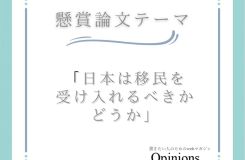 元芝園団地自治会岡﨑 広樹
元芝園団地自治会岡﨑 広樹岡﨑 広樹の記事を見る
-
 岡山外語学院留学生カーン エムディ マムン
岡山外語学院留学生カーン エムディ マムンカーン エムディ マムンの記事を見る
-
 行政書士板垣 岳人
行政書士板垣 岳人板垣 岳人の記事を見る
-
 Crimson Education教育コンサルタント蘇 暁辰(Xiaochen Su)
Crimson Education教育コンサルタント蘇 暁辰(Xiaochen Su)蘇 暁辰(Xiaochen Su)の記事を見る
-
 神戸大学准教授斉藤 善久
神戸大学准教授斉藤 善久斉藤 善久の記事を見る
-
 ドイツ在住阿部プッシェル 薫
ドイツ在住阿部プッシェル 薫阿部プッシェル 薫の記事を見る
-
 ライター/編集者黒部 麻子
ライター/編集者黒部 麻子黒部 麻子の記事を見る
-
 翻訳家田尻 潤子
翻訳家田尻 潤子田尻 潤子の記事を見る
-
 アブダビ環境庁長官 Environment Agency – Abu Dhabi (ead.gov.ae)シャイカ・サレム・アル・ダヘリ
アブダビ環境庁長官 Environment Agency – Abu Dhabi (ead.gov.ae)シャイカ・サレム・アル・ダヘリシャイカ・サレム・アル・ダヘリの記事を見る
-
 元整形外科医/農園主散木洞人
元整形外科医/農園主散木洞人散木洞人の記事を見る
-
 豊橋技術科学大学パク ミンジョン
豊橋技術科学大学パク ミンジョンパク ミンジョンの記事を見る
-
 生理革命委員会澤田まりあ、山形萌花、山領珊南
生理革命委員会澤田まりあ、山形萌花、山領珊南澤田まりあ、山形萌花、山領珊南の記事を見る
-
 SOMPOケア株式会社藤田 定司
SOMPOケア株式会社藤田 定司藤田 定司の記事を見る
-
 おかやま山陽高等学校橘 里香サニヤ
おかやま山陽高等学校橘 里香サニヤ橘 里香サニヤの記事を見る
-
 ソシエタス総合研究所 研究員坂入 悦子
ソシエタス総合研究所 研究員坂入 悦子坂入 悦子の記事を見る
-
 Hiro山下行政書士国際法務事務所 代表山下裕司
Hiro山下行政書士国際法務事務所 代表山下裕司山下裕司の記事を見る
-
 ソシエタス総合研究所 研究員Niklas Holzapfel ホルツ アッペル ニクラス
ソシエタス総合研究所 研究員Niklas Holzapfel ホルツ アッペル ニクラスNiklas Holzapfel ホルツ アッペル ニクラスの記事を見る
-
 サウンドエンジニアEmre・Ekici エムレ・エキジ
サウンドエンジニアEmre・Ekici エムレ・エキジEmre・Ekici エムレ・エキジの記事を見る
-
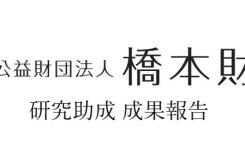 NPO法人岡山県国際団体協議会
NPO法人岡山県国際団体協議会岡山県国際団体協議会の記事を見る
-
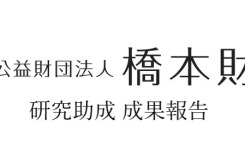 岡山大学 学術研究院 社会文化科学学域 教授東條 光彦
岡山大学 学術研究院 社会文化科学学域 教授東條 光彦東條 光彦の記事を見る
-
 福岡大学 名誉教授田村 和夫
福岡大学 名誉教授田村 和夫田村 和夫の記事を見る
-
 ソシエタス総合研究所 研究員相川 真穂
ソシエタス総合研究所 研究員相川 真穂相川 真穂の記事を見る
-
 一般社団法人京都総合科学研究所 アドバイザー松村 道郎
一般社団法人京都総合科学研究所 アドバイザー松村 道郎松村 道郎の記事を見る
-
 ワラム株式会社 代表取締役加藤 侑子
ワラム株式会社 代表取締役加藤 侑子加藤 侑子の記事を見る
-
 岡山市立操南中学校 教諭/NPO法人国際協力研究所・岡山代表理事竹島 潤
岡山市立操南中学校 教諭/NPO法人国際協力研究所・岡山代表理事竹島 潤竹島 潤の記事を見る
-
 新西横浜街の予防医療ケア研究室 保健師・看護師・元先端バイオ創薬ベンチャー取締役五十嵐 直敬
新西横浜街の予防医療ケア研究室 保健師・看護師・元先端バイオ創薬ベンチャー取締役五十嵐 直敬五十嵐 直敬の記事を見る
-
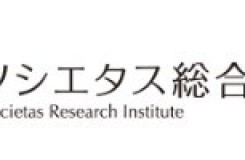 共著橋本俊明・秋吉湖音
共著橋本俊明・秋吉湖音橋本俊明・秋吉湖音の記事を見る
-
 ライター菊池 洋勝
ライター菊池 洋勝菊池 洋勝の記事を見る
-
 大東文化大学国際関係学部・特任教授 高崎経済大学経済学部・非常勤講師 目白大学経営学部経営学科&目白大学大学院経営学研究科 非常勤講師 長崎県佐世保市役所 経済活性化~産業振興に関するアドバイザー、博士(経済学)江崎 康弘
大東文化大学国際関係学部・特任教授 高崎経済大学経済学部・非常勤講師 目白大学経営学部経営学科&目白大学大学院経営学研究科 非常勤講師 長崎県佐世保市役所 経済活性化~産業振興に関するアドバイザー、博士(経済学)江崎 康弘江崎 康弘の記事を見る
-
 ソシエタス総合研究所 研究員秋吉 湖音
ソシエタス総合研究所 研究員秋吉 湖音秋吉 湖音の記事を見る
-
 JICA専門家足立 伸也
JICA専門家足立 伸也足立 伸也の記事を見る
-
 富士通株式会社 第三ファイナンス事業本部 シニアマネージャー安留 義孝
富士通株式会社 第三ファイナンス事業本部 シニアマネージャー安留 義孝安留 義孝の記事を見る
-
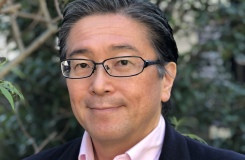 EDAS(イーダス)理事長田村 拓
EDAS(イーダス)理事長田村 拓田村 拓の記事を見る
-
 監督・プロデューサー湯浅 典子
監督・プロデューサー湯浅 典子湯浅 典子の記事を見る
-
 日本経済大学 准教授山下 誠矢
日本経済大学 准教授山下 誠矢山下 誠矢の記事を見る
-
 人と医療の研究室 代表池尻 達紀
人と医療の研究室 代表池尻 達紀池尻 達紀の記事を見る
-
 一般社団法人飛島学園 代表理事堂野 博之
一般社団法人飛島学園 代表理事堂野 博之堂野 博之の記事を見る
-
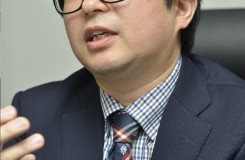 ニッセイ基礎研究所 生活研究部 主任研究員、ヘルスケアリサーチセンター・ジェロントロジー推進室兼任金 明中
ニッセイ基礎研究所 生活研究部 主任研究員、ヘルスケアリサーチセンター・ジェロントロジー推進室兼任金 明中金 明中の記事を見る
-
 医療法人財団足立病院 理事長、社会福祉法人あだち福祉会 理事長畑山 博
医療法人財団足立病院 理事長、社会福祉法人あだち福祉会 理事長畑山 博畑山 博の記事を見る
-
 教育研究家、合同会社ライフ&ワーク代表妹尾 昌俊
教育研究家、合同会社ライフ&ワーク代表妹尾 昌俊妹尾 昌俊の記事を見る
-
 ハーバード大学ベス・イスラエル・ディーコネス・メディカルセンター、高度消化管/最小侵襲外科フェロー中元 啓太郎
ハーバード大学ベス・イスラエル・ディーコネス・メディカルセンター、高度消化管/最小侵襲外科フェロー中元 啓太郎中元 啓太郎の記事を見る
-
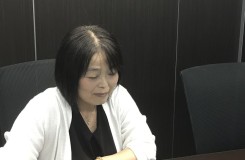 ソシエタス総合研究所 主任研究員井上 登紀子
ソシエタス総合研究所 主任研究員井上 登紀子井上 登紀子の記事を見る
-
 ソシエタス総合研究所 研究員松田 郁乃
ソシエタス総合研究所 研究員松田 郁乃松田 郁乃の記事を見る
-
 ソシエタス総合研究所 研究員アイシェ・ウルグン・ソゼン Ayse Ilgin Sozen
ソシエタス総合研究所 研究員アイシェ・ウルグン・ソゼン Ayse Ilgin Sozenアイシェ・ウルグン・ソゼン Ayse Ilgin Sozenの記事を見る
-
 NPO法人岡山市子どもセンター 事務局久川 春菜
NPO法人岡山市子どもセンター 事務局久川 春菜久川 春菜の記事を見る
-
 ユースワーカー(Youth Woker)森分 志学
ユースワーカー(Youth Woker)森分 志学森分 志学の記事を見る
-
 ペンネーム三村 喜久雄
ペンネーム三村 喜久雄三村 喜久雄の記事を見る
-
 ペンネーム黒木 洋一郎
ペンネーム黒木 洋一郎黒木 洋一郎の記事を見る
-
 NPO法人チャリティーサンタ 理事河津 泉
NPO法人チャリティーサンタ 理事河津 泉河津 泉の記事を見る
-
 金沢大学人間社会学域地域創造学類・准教授 、特定非営利活動法人国土利用再編研究所・理事長林 直樹
金沢大学人間社会学域地域創造学類・准教授 、特定非営利活動法人国土利用再編研究所・理事長林 直樹林 直樹の記事を見る
-
 認定NPO法人ペアレント・サポートすてっぷ理事長安藤希代子
認定NPO法人ペアレント・サポートすてっぷ理事長安藤希代子安藤希代子の記事を見る
-
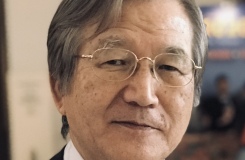 カリフォルニア大学サンフランシスコ校小児胸部心臓外科教授佐野俊二
カリフォルニア大学サンフランシスコ校小児胸部心臓外科教授佐野俊二佐野俊二の記事を見る
-
 社会福祉法人 旭川荘 ひらたえがお保育園 園長江田 加代子
社会福祉法人 旭川荘 ひらたえがお保育園 園長江田 加代子江田 加代子の記事を見る
-
 NPO法人 おかやまUFE 副理事長 ・NPO法人 おかやまUFE 事務局阪井 ひとみ・永松千恵
NPO法人 おかやまUFE 副理事長 ・NPO法人 おかやまUFE 事務局阪井 ひとみ・永松千恵阪井 ひとみ・永松千恵 の記事を見る
-
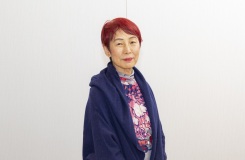 社会学者 東京大学名誉教授 認定NPO法人ウィメンズアクションネットワーク(WAN)理事長 上野 千鶴子
社会学者 東京大学名誉教授 認定NPO法人ウィメンズアクションネットワーク(WAN)理事長 上野 千鶴子上野 千鶴子 の記事を見る
-
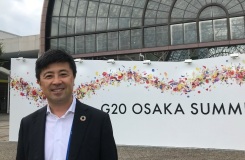 外務省 国際保健政策室長 鷲見 学
外務省 国際保健政策室長 鷲見 学鷲見 学の記事を見る
-
 プロ・アダプティブ・サーファー藤原(旧姓:川上)智貴
プロ・アダプティブ・サーファー藤原(旧姓:川上)智貴藤原(旧姓:川上)智貴の記事を見る
-
 京都大学霊長類研究所 教授正高信男
京都大学霊長類研究所 教授正高信男正高信男の記事を見る
-
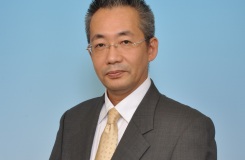 社会医療法人石川記念会HITO病院緩和ケア内科統括部長大坂巌
社会医療法人石川記念会HITO病院緩和ケア内科統括部長大坂巌大坂巌の記事を見る
-
 東京医療学院大学保健医療学部教授上田 諭
東京医療学院大学保健医療学部教授上田 諭上田 諭の記事を見る
-
 「夢を叶える145」ライター宮村孝博
「夢を叶える145」ライター宮村孝博宮村孝博の記事を見る
-
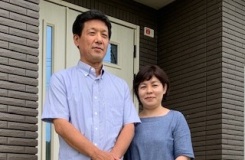 NPO法人 Anneの家 代表 美作地区里親会会員松本芳也・淳子夫妻
NPO法人 Anneの家 代表 美作地区里親会会員松本芳也・淳子夫妻松本芳也・淳子夫妻の記事を見る
-
 特定非営利活動法人あかね 代表理事中山 遼
特定非営利活動法人あかね 代表理事中山 遼中山 遼の記事を見る
-
 大阪市立総合医療センター 緩和医療科部長 兼 緩和ケアセンター長 大阪市立大学医学部臨床准教授 一般社団法人「こどものホスピスプロジェクト」常務理事 日本小児科学会専門医 英国カーディフ大学緩和ケア認定医(Certificate in Palliative Care) 日本緩和医療学会暫定多田羅竜平
大阪市立総合医療センター 緩和医療科部長 兼 緩和ケアセンター長 大阪市立大学医学部臨床准教授 一般社団法人「こどものホスピスプロジェクト」常務理事 日本小児科学会専門医 英国カーディフ大学緩和ケア認定医(Certificate in Palliative Care) 日本緩和医療学会暫定多田羅竜平多田羅竜平の記事を見る
-
 NPO法人 岡山マインド「こころ」/代表理事 一般社団法人お互いさま・まびラボ/副代表理事多田伸志
NPO法人 岡山マインド「こころ」/代表理事 一般社団法人お互いさま・まびラボ/副代表理事多田伸志多田伸志の記事を見る
-
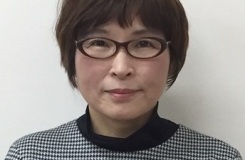 一般社団法人MY TREE代表理事 MY TREEペアレンツ・プログラムスーパーバイザー 認定フェミニストカウンセラー (公認心理師)中川和子
一般社団法人MY TREE代表理事 MY TREEペアレンツ・プログラムスーパーバイザー 認定フェミニストカウンセラー (公認心理師)中川和子中川和子の記事を見る
-
 兵庫県立ひょうごこころの医療センター精神科医師小田 陽彦
兵庫県立ひょうごこころの医療センター精神科医師小田 陽彦小田 陽彦の記事を見る
-
 独立行政法人国立病院機構福山医療センター院長岩垣博己・堀井城一朗・矢野 平
独立行政法人国立病院機構福山医療センター院長岩垣博己・堀井城一朗・矢野 平岩垣博己・堀井城一朗・矢野 平の記事を見る
-
 岡山大学 教授 文学部長田中 共子
岡山大学 教授 文学部長田中 共子田中 共子の記事を見る
-
 Civil Engineer (仕組みつくりの技術者)石田篤史
Civil Engineer (仕組みつくりの技術者)石田篤史石田篤史の記事を見る
-
 一般財団法人キヤノングローバル戦略研究所 研究主幹・経済学博士松山幸弘
一般財団法人キヤノングローバル戦略研究所 研究主幹・経済学博士松山幸弘松山幸弘の記事を見る
-
 岡山大学生殖補助医療技術教育研究センター ART教育研究部門長・教授舟橋 弘晃
岡山大学生殖補助医療技術教育研究センター ART教育研究部門長・教授舟橋 弘晃舟橋 弘晃の記事を見る
-
 医療法人サンズ理事長浅野 直
医療法人サンズ理事長浅野 直浅野 直の記事を見る
-
 株式会社ヘリオス 代表執行役社長CEO鍵本忠尚
株式会社ヘリオス 代表執行役社長CEO鍵本忠尚鍵本忠尚の記事を見る
-
 慶應義塾大学文学部人間科学専攻教授(医療人類学) McGill大学人類学部・医療社会研究学部Ph.D.北中淳子
慶應義塾大学文学部人間科学専攻教授(医療人類学) McGill大学人類学部・医療社会研究学部Ph.D.北中淳子北中淳子の記事を見る
-
 岡山大学病院 緩和支持医療科片山英樹
岡山大学病院 緩和支持医療科片山英樹片山英樹の記事を見る
-
 岡山市役所 保健福祉企画総務課松岡克朗
岡山市役所 保健福祉企画総務課松岡克朗松岡克朗の記事を見る
-
 近現代史研究家青木康嘉
近現代史研究家青木康嘉青木康嘉の記事を見る
-
 独立行政法人国立病院機構福山医療センター院長岩垣博己・長谷川利路・中島正勝
独立行政法人国立病院機構福山医療センター院長岩垣博己・長谷川利路・中島正勝岩垣博己・長谷川利路・中島正勝の記事を見る
-
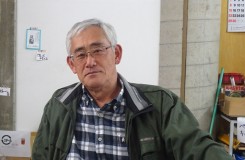 岡山高等学院 副校長 水野文一郎
岡山高等学院 副校長 水野文一郎水野文一郎の記事を見る
-
 社会の仕組み屋、社会の編集者石原 達也
社会の仕組み屋、社会の編集者石原 達也石原 達也の記事を見る
-
 一般社団法人SGSG理事長/中国学園大学子ども学部講師野村泰介
一般社団法人SGSG理事長/中国学園大学子ども学部講師野村泰介野村泰介の記事を見る
-
 一橋大学経済研究所 教授神林 龍
一橋大学経済研究所 教授神林 龍神林 龍の記事を見る
-
 特定医療法人自由会 理事 (社会福祉法人敬友会 理事、公益財団法人橋本財団 理事)橋本 健二
特定医療法人自由会 理事 (社会福祉法人敬友会 理事、公益財団法人橋本財団 理事)橋本 健二橋本 健二の記事を見る
-
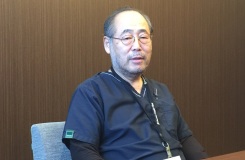 医療法人社団 岡山二人クリニック 理事長、医学博士林 伸旨
医療法人社団 岡山二人クリニック 理事長、医学博士林 伸旨林 伸旨の記事を見る
-
 フリーライター渡辺嗣郎(わたなべ しろう)
フリーライター渡辺嗣郎(わたなべ しろう)渡辺嗣郎(わたなべ しろう)の記事を見る
-
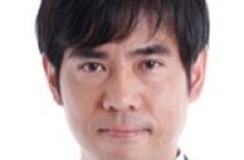 国立大学法人岡山大学 副理事(国際担当)横井 篤文
国立大学法人岡山大学 副理事(国際担当)横井 篤文横井 篤文の記事を見る
-
 ペンネームドクターX
ペンネームドクターXドクターXの記事を見る
-
 NPO法人 山村エンタープライズ 代表理事藤井裕也
NPO法人 山村エンタープライズ 代表理事藤井裕也藤井裕也の記事を見る
-
 キャンサー・ソリューションズ株式会社 代表取締役社長桜井 なおみ
キャンサー・ソリューションズ株式会社 代表取締役社長桜井 なおみ桜井 なおみの記事を見る
-
 AMDA(アムダ) グループ代表・認定非営利活動法人AMDA 理事長菅波 茂
AMDA(アムダ) グループ代表・認定非営利活動法人AMDA 理事長菅波 茂菅波 茂の記事を見る
-
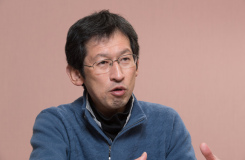 ふれあい歯科ごとう代表五島 朋幸
ふれあい歯科ごとう代表五島 朋幸五島 朋幸の記事を見る
-
 介護従事者髙田 浩一
介護従事者髙田 浩一髙田 浩一の記事を見る
-
 ケアマネ-ジャー・社会福祉士かえる ちから
ケアマネ-ジャー・社会福祉士かえる ちからかえる ちからの記事を見る
-
 五常・アンド・カンパニー株式会社 代表取締役社長慎 泰俊
五常・アンド・カンパニー株式会社 代表取締役社長慎 泰俊慎 泰俊の記事を見る
-
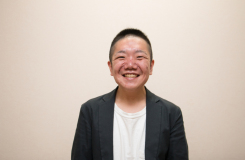 NPO法人 ポケットサポート代表理事三好 祐也
NPO法人 ポケットサポート代表理事三好 祐也三好 祐也の記事を見る
-
 医療法人 寺田病院 院長板野 聡
医療法人 寺田病院 院長板野 聡板野 聡の記事を見る
-
 鳥取市立病院 地域医療総合支援センター 生活支援室 副室長、リハビリテーション部 副部長、歯科 医長目黒 道生
鳥取市立病院 地域医療総合支援センター 生活支援室 副室長、リハビリテーション部 副部長、歯科 医長目黒 道生目黒 道生の記事を見る
-
 鳥取市立病院地域医療総合支援センター長 鳥取市福祉部参与足立 誠司
鳥取市立病院地域医療総合支援センター長 鳥取市福祉部参与足立 誠司足立 誠司の記事を見る
-
 ペンネーム池井戸 高志
ペンネーム池井戸 高志池井戸 高志の記事を見る
-
 ペンネーム池田 出水
ペンネーム池田 出水池田 出水の記事を見る
-
 岡山大学大学院ヘルスシステム統合科学研究科教授松岡 順治
岡山大学大学院ヘルスシステム統合科学研究科教授松岡 順治松岡 順治の記事を見る
-
 鳥取市立病院 名誉院長田中 紀章
鳥取市立病院 名誉院長田中 紀章田中 紀章の記事を見る
-
 岡山大学大学院保健学研究科 副研究科長 教授齋藤 信也
岡山大学大学院保健学研究科 副研究科長 教授齋藤 信也齋藤 信也の記事を見る
-
 公益財団法人橋本財団 理事長、医学博士橋本 俊明
公益財団法人橋本財団 理事長、医学博士橋本 俊明橋本 俊明の記事を見る

